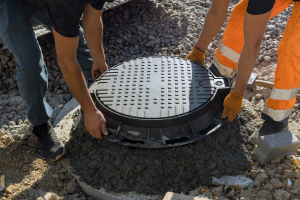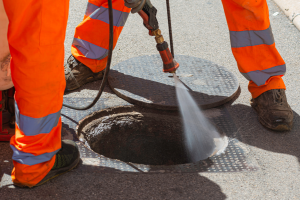Understanding the Purpose of Sewer Systems
Sewer systems are an important part of urban infrastructure, yet often go unnoticed until something goes wrong. At their core, the purpose of sewer systems is to safely collect, transport, and dispose of wastewater from homes, businesses, and industries. This includes everything from the water you flush down the toilet to the runoff from storm drains during heavy rain.
Why Sewer Systems Matter
The purpose of sewer systems extends far beyond mere convenience. These systems are essential for public health, environmental protection, and community hygiene. Without an efficient sewage infrastructure, waste would accumulate in populated areas, leading to the spread of waterborne diseases like cholera, dysentery, and hepatitis A. By efficiently carrying waste away from residential and commercial areas, sewer systems help reduce the risk of contamination and disease outbreaks.

How Sewer Systems Work
There are generally two main types of sewer systems: sanitary sewers and storm sewers.
- Sanitary sewer systems handle wastewater from indoor plumbing such as sinks, toilets, showers, and washing machines. This waste is transported through a network of underground pipes to a sewage treatment facility, where harmful contaminants are removed before the water is released back into the environment.
- Storm sewer systems, on the other hand, are designed to carry rainwater and surface runoff away from streets, parking lots, and roofs. This prevents flooding and protects buildings and roadways from water damage. In some cities, combined sewer systems handle both types of water, which can pose challenges during heavy rainfall.
Environmental Benefits
One of the key roles of a sewer system is to protect natural ecosystems. Without proper wastewater management, untreated sewage could flow directly into rivers, lakes, or oceans, harming aquatic life and disturbing the natural balance of ecosystems. Modern sewer systems minimize this risk by assuring that wastewater is treated and cleaned before it reenters the environment.
Additionally, by managing stormwater runoff, sewer systems prevent soil erosion and reduce pollutants entering water bodies. These systems help capture debris, oil, pesticides, and other contaminants that wash off urban surfaces during rainfall.
Infrastructure and Community Development
The purpose of sewer systems also includes supporting economic and community development. Proper sewage infrastructure enables population growth by making it possible to safely accommodate more homes and businesses. It also enhances property values and contributes to a better quality of life.
Cities with outdated or insufficient sewer systems often face challenges such as sewer overflows, flooding, and public complaints. Investing in sewer infrastructure is not just a health or environmental issue, it’s a matter of civic planning and long-term sustainability.
Maintenance and Responsibility
Maintaining a sewer system requires regular inspections, cleaning, and upgrades. Tree root invasions, grease blockages, and collapsed pipes can break the flow of wastewater, leading to backups and property damage. Municipal governments are generally responsible for main sewer lines, while homeowners are typically responsible for the lateral lines that connect their homes to the public system.
Public awareness also plays a part. Flushing non-degradable items like wipes, grease, or sanitary products can damage pipes and lead to blockages. Proper usage and community cooperation help keep the system running smoothly.

Call the Experts for Sewer Line Issues
If you suspect a sewer line problem or need a professional inspection, don’t wait for a small issue to turn into costly damage. From routine maintenance to emergency repairs, expert help is just a call away.
Call (207) 814-8908 today to schedule your service with a licensed sewer and drain professional.
Also Read:
